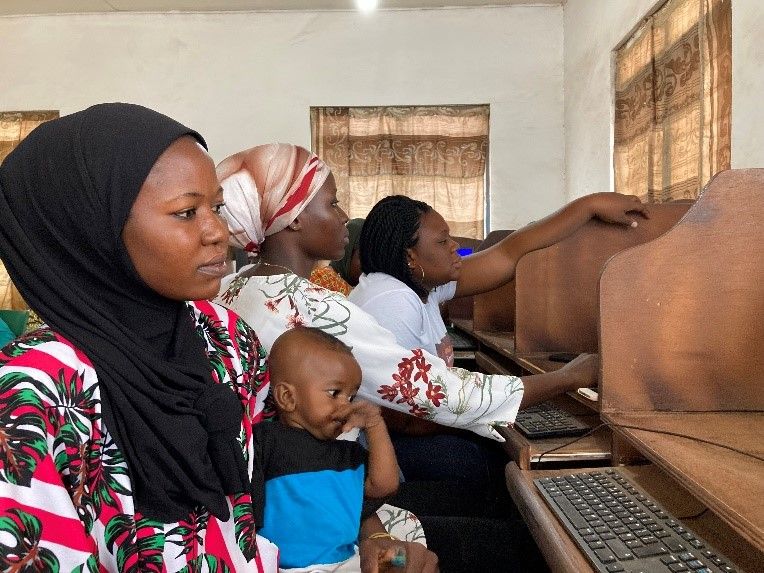
Ghana’s underserved rural communities get a digital skills training boost
by ITU News
After Abdulai Asana started a small bakery in her hometown of Yendi, Ghana, she wanted to improve her digital marketing skills to grow her new pastry business online.
“As an entrepreneur, if you want to promote your business, things are online, and people benefit from that,” Asana said.
This led Asana to participate in a digital skills training programme held earlier this year at the Yendi community ICT centre in Ghana’s Northern Region.
Conducted by Ghana Investment Fund for Electronic Communications (GIFEC), the training was part of the ongoing ‘Boosting Digital Skills’ project, which, through the Digital Transformation Centre Initiative (DTCI) funded by NORAD and the International Telecommunication Union (ITU), aims to serve citizens like Asana living in Ghana’s underserved rural communities.
Creating direct impact
Digital skills training was delivered across a network of 101 DTCI-supported ICT community centres across Ghana.
The training reached female entrepreneurs, out-of-school youth, schoolteachers, students, and other marginalized individuals, with a total of 3,339 Ghanaian citizens – including 2,220 female participants (66 percent) – taking part in the training courses.
According to Asana, the training directly impacted her long-term goals.
“As an entrepreneur, if you join [the training] and learn more, it will help you to promote your business,” she said.
Asana plans to use the newly acquired knowledge to improve the online aspects of her small business, she added, which she ultimately hopes will become a major source of income.
The path ahead
GIFEC administrator Prince Ofosu Sefah highlighted the importance of the partnership between ITU and GIFEC for Ghanaian citizens during a closing event held in the Ashanti Region earlier this year.
By engaging further with beneficiaries, the impact of this capacity building project will continue to “make us all proud,” Sefah said.
“We will continue to engage our beneficiaries […] to make sure that the impact of this capacity building project – the skills and knowledge that they have gained – [are] put to good use,” he said, adding: “So that we can all continue to benefit from digitalization.”
To sustain project gains, GIFEC will follow-up with trainees and offer further support, Sefah added.
Next steps for the DTCI
The DTCI was launched in September 2019 by ITU in partnership with Cisco. It aims to help countries strengthen digital capacity, especially for citizens in underserved communities.
Digital Transformation Centres (DTCs) become part of a global network of institutions that work to accelerate the uptake of digital technologies among citizens and boost the capacity of young entrepreneurs and SMEs to succeed in the digital economy.
DTCs receive free access to training materials developed by ITU, Cisco, HP, and other partners, including train-the-trainer programmes. They also benefit from networking opportunities and can award internationally recognized certifications to local citizens.
As more organizations partner with the DTCI and it moves into its second phase, the Initiative will continue to offer citizens and small entrepreneurs in underserved communities digital skills training, building on its success in Ghana.
Header image: Abdulai Asana, a beneficiary of the DTC training uses a computer with an infant on her lap. Image credit: ITU/Alex Kojo Boahoma
